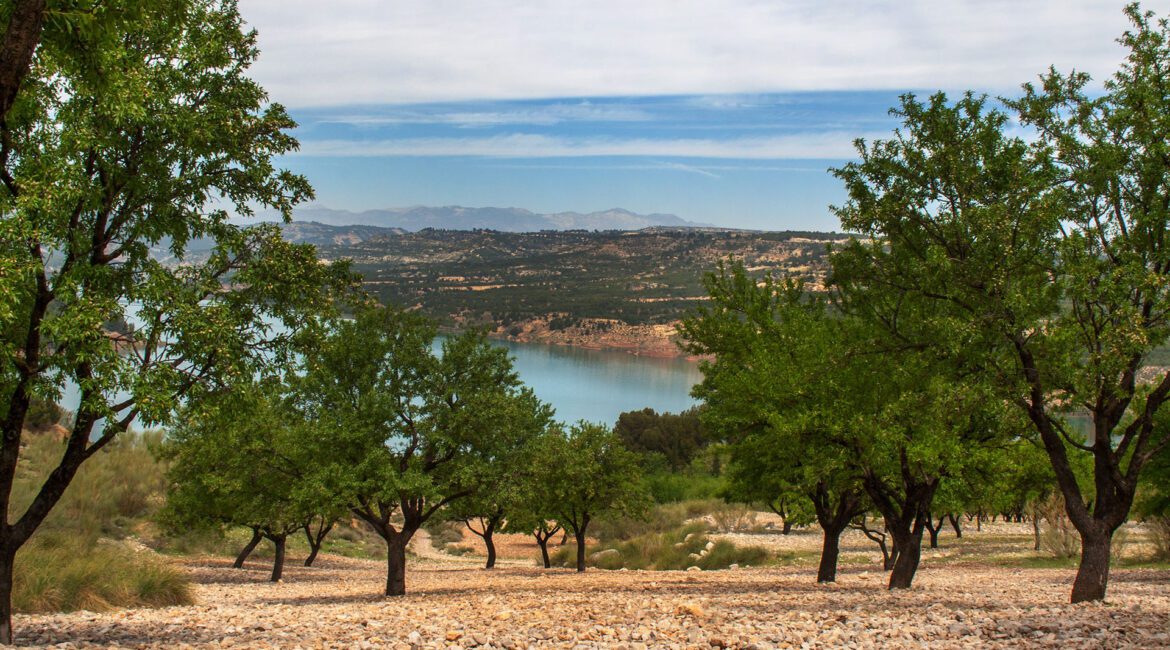Nut crops favor very warm climates, and this climate limitation concentrates most of the production to the far western states. There are commonalities among the various nut crops, but there are also come big differences.
Let’s explore what a real estate lender might be looking for when considering a loan request for collateral containing nut crops:
- Climate/Collateral Location
A lender will need to see nuts grown in an area that gives them the longest growing season possible. Heat units are important for maximum production. Conversely, nut crops require certain chilling hours in winter to give the trees some rest and the ability to set a crop for the coming season. It’s been proven recently that chilling hours for pistachios, in particular, is key to maintaining maximum production.
As the market shows considerable strength over time, growers tend to plant trees in areas not suited to maximum growth or production. Usually poor water, soil or climatic conditions may be prevalent. Appraisers will discount these properties heavily and lender will likely not loan on this collateral. Borrowers should stay in proven areas well suited for the nut crop they are growing.
- Marketing
As part of the financial analysis, your lender will always be looking for a sound marketing plan. They will be requesting historical financial statements with profit and loss statements that show exactly what the borrower received for their product over a minimum three-year history. Then they will want a budget for the coming season showing what sales intentions are for this period.
If there are delays in sales, periods of low prices or low yields, additional questions will be forthcoming: Are the nuts sold through a cooperative, independently or by a broker? Are there any contracts in place? Who is the processor and are they reputable? What is the net price received after hauling, shelling, hulling, drying or any other processing required? Is the net price comparable to what other growers in the area are receiving?
- Purchase Price vs Debt Coverage
Since nut crops can be very profitable at times, the value of high producing nuts on good soils with good water in a desirable area can see very high prices per acre; $20,000 to $40,000/ac. in some cases. This has been the case with many almond and pistachio orchards in recent years.
Many times, the borrower will want to put as little money down on the property purchase as possible and come to the real estate lender to finance the rest. Generally speaking, most real estate lenders are going to keep the loan to value on these properties less than 65%. Lenders ensure that cash flow will support the pending payment.
- Orchard Maturity and Redevelopment
All permanent crops, including nuts, reach an age, or a point, where they are no longer economically viable. Hardwoods like pistachios, walnuts and pecans will generally last longer than almonds which reach that stage at 15 to 25 years. Rather redeveloping and old orchard or establishing a new one, it may be prudent to obtain a development loan from your ag real estate lender.
During the non-productive stage, typically 4 to 7 years, financing the cost of development may be necessary to ease the case flow. In most cases, interest-only loans are available during this period. Lenders are cautious of the percentage of an acreage not producing at any one time. Depending on strength of cash flow, ideally 75% to 90% of the acres should be in full production at any one time to support the non-producing acres.
When securing an appraisal, be sure to obtain an “as is” and an “as will be” value to reflect the current immature value and the anticipated value once in full production. Lenders will also want a detailed development budget.
- Additional Items.
In addition to all items mentioned, each type of nut has their own set of issues that could cause concern with lenders. Issues such as alternate bearing characteristics, varietal acceptance, crop specific diseases, poor soil tolerance ability, poor water quality tolerance, weather extremes and so on. If any of these categories are causing issues, the lender will be taking a harder look to determine the overall effect on past and potential cash flow.
At times, an ag lender who understands your business may appear overly cautious. But their expertise and knowledge of the industry will benefit you as a borrower, ensuring that funds are supported by the collateral.
Conterra Ag specializes in loan products specifically for development and redevelopment of permanent crops. If you’re ready to refinance or make your next land purchase and have questions, start the process by contacting a Conterra Ag Capital lending specialist today.





